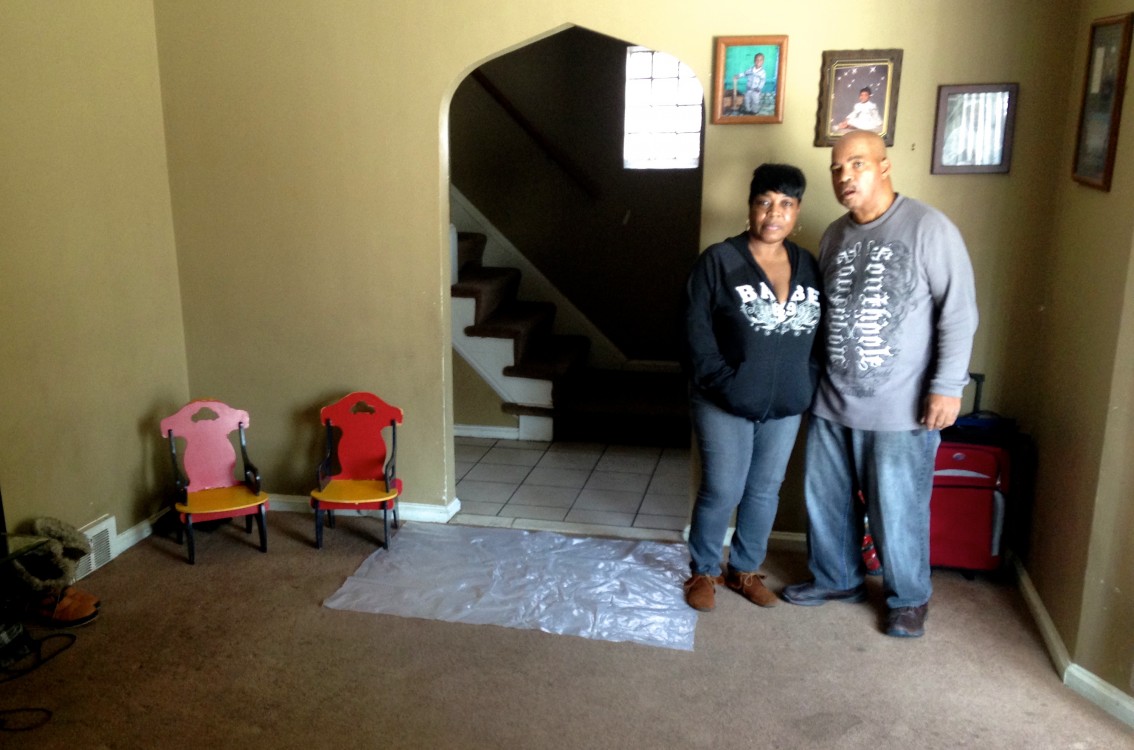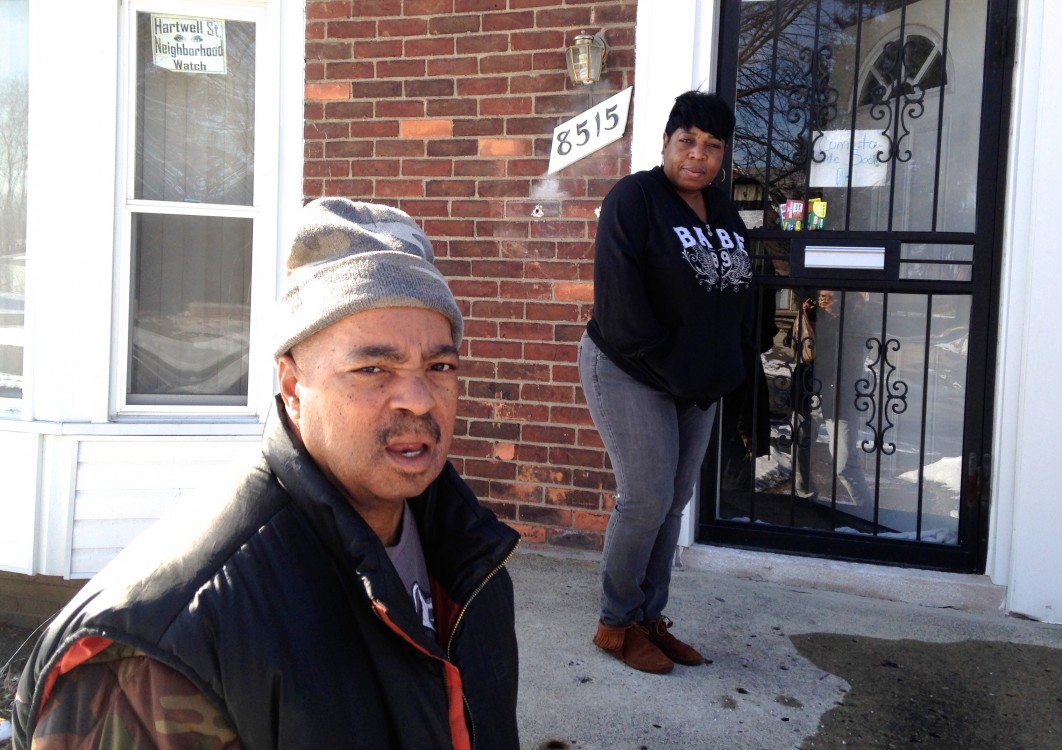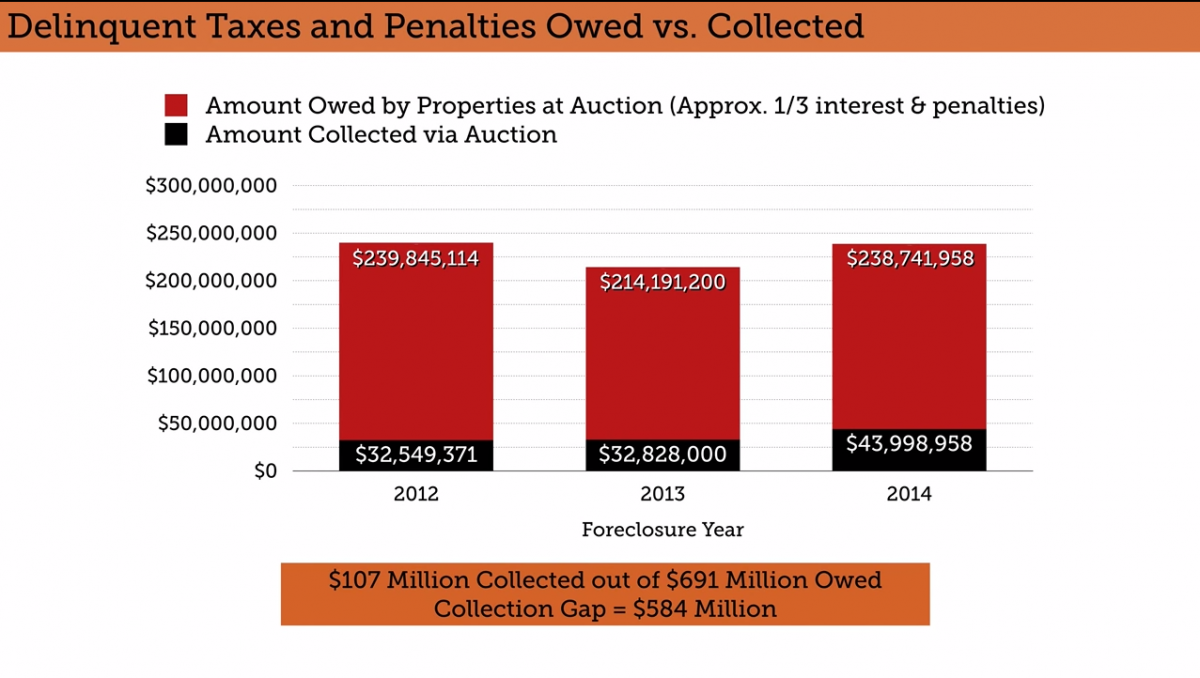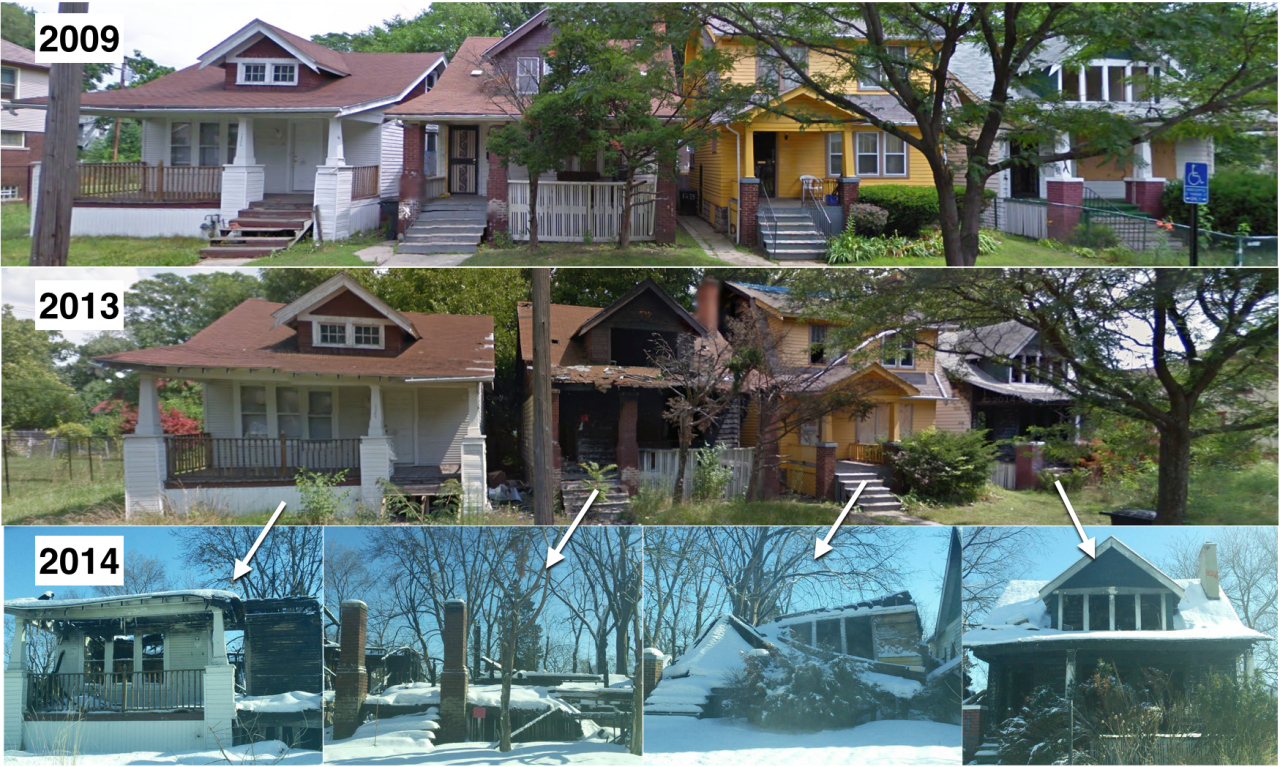
When Lula Burke heard the knock on the door on Christmas Eve, she hoped it was her husband coming in from the cold. She had been preparing holiday dinner while watching her two grandchildren run toy trucks across the living room carpet.
On the front step of her Detroit home was not her husband, but a representative of Vaga Investment Incorporation. He pressed a document – a housing deed – up against the glass of the storm door and told Burke that the real estate company had purchased her home at the county tax auction for $5,500. They needed to be out by February.
“My grandchildren heard,” recalls Burke. “They said, ‘Somebody’s got the house, Grandma?’"
In 2014, Daryl and Lula Burke had their home in Detroit foreclosed and auctioned off in a matter of months. They are now facing down eviction while scrambling for the means to repurchase their home.
The Burkes are just one year ahead of a massive tidal wave of tax foreclosures building in Detroit. In 2015, nearly 100,000 Detroiters – more than one-seventh of the city’s population – are facing foreclosure and the resale of their homes.
The tax foreclosure crisis in Detroit is so dire that local activists compare it to Hurricane Katrina, calling it a “hurricane without water.” Most disturbing about the Burkes' situation, but something all too common in Detroit’s foreclosure crisis, is the fact that their home was resold at auction for a fraction of their debt, something they could have afforded themselves.
A Family's Story, a City's Crisis
When I first speak with Daryl and Lula Burke, they ask to meet at a local McDonald's. “No offense,” Daryl says, “but we’re a little hesitant to let anyone in our home right now.”
On the hard plastic bench, the couple tag-team the telling of their story. Daryl is a Vietnam Veteran. He still gets jerked out of sleep with flashbacks of parachuting into the jungle. Last winter, after Daryl fell into a coma and had his pension check cut in half, the Burkes came home to find a yellow foreclosure notice taped to their front door.
They had fallen three years behind on their property taxes, and a brutal 18% interest rate put them $17,000 in debt. While they could have afforded a modest payment plan, $17,000 was far out of reach. In October of last year, their stout, red-brick home on the city's far west side was sold at auction for $5,500.
“Add that up for me, please,” Lula said. “How are you going to kick us out of a house we paid $50,000 for based on a $17,000 debt, then turn around and sell it to a stranger for $5,500? It just don’t make sense.”
The Burkes' situation illuminates a dangerous shortcoming in the finances of tax foreclosure in Detroit: While the auction is conducted in the name of recouping lost funds, it may actually be costing the county more than it saves.
As abandoned properties began to scar the city in the 1990s, Michigan passed a law requiring the foreclosure and auctioning off of any property that fell three years behind in taxes. The idea was that through auction sales, the county would recoup unpaid bills and return those abandoned properties to productive use.
But Detroit hasn’t reassessed property values in decades, so even as home values plummeted in 2008, taxes remained inordinately high. Tens of thousands of Detroiters unable to pay their property taxes in the wake of the recession now face foreclosure and eviction on homes they’ve owned for years.
Ted Phillips, the director of the United Community Housing Coalition in Detroit, has been working with homeowners facing tax foreclosure for more than a decade. “We thought we were in a tax foreclosure crisis in 2003,” he explains. “That year we had 1,800 occupied homes up for foreclosure and we all thought that was outrageous. Now that’s just a drop in the bucket.”
Phillips and his team used to make home visits to affected families, but "the sheer numbers today have made it impossible to do what we did before,” he said.
Jerry Paffendorf is CEO of Loveland Technologies, a social technology company that collects, digitizes and publicizes property information in Detroit. He and his team have been sorting through years of tax foreclosure data, and finding that, as Lula Burke suggests, the numbers don’t always add up.
Paffendorf notes that the tax auction’s original mission was to recoup unpaid taxes through the resale of delinquent properties. Since the act’s passage, however, real property values have fallen so far out of sync with tax-assessed values that most foreclosed homes sell for less than they owe in taxes. At each year’s auction, when the county sells foreclosed homes to an open market, it gets only a fraction of its debt in return.
According to Loveland, between 2012 and 2014, tax-foreclosed properties owed the county a total of $691 million. When those same properties were repossessed and sold in auction, they netted just $107 million. The county is collecting a mere 16% of what it's after.
Foreclosures of occupied homes, Paffendorf points out, have hefty hidden costs too. Loveland data suggests that of the 37,000 occupied homes going into foreclosure in 2015, roughly 4,000 will wind up vacant and eventually require demolition. At $12,000 apiece for demolition, the eventual cleanup of those once occupied homes will cost the city nearly $50 million.
“The statistics speak for themselves,” Paffendorf said. “Even if you’re just looking at the finances of foreclosure, even if you ignore the clear human element, you are looking at a very heavy cost for the city.”
When asked about possible solutions, Paffendorf and Phillips both point first to property tax reassessment, noting that the city has not fully assessed its property in more than 50 years – and that nearly all Detroiters, as a result, are over-assessed.
While Mayor Mike Duggan recently announced tax reductions and the beginning of a citywide reassessment project, some worry the wheels are turning too slowly with tens of thousands of Detroiters facing homelessness this year.
”It’s a problem that has never been seen before in this size,” Paffendorf said. “There isn’t an off-the-shelf medication for it.”
3 WAYS TO SHOW YOUR SUPPORT
- Log in to post comments


















